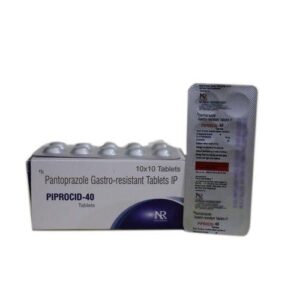OMEPRAZOLE
OMEPRAZOLE: Drug: Omeprazole
Use: Omeprazole is a proton pump inhibitor (PPI) used to treat conditions related to excessive stomach acid production, including gastroesophageal reflux disease (GERD), gastric ulcers, and duodenal ulcers. It can also be used to prevent ulcers caused by certain medications (such as NSAIDs) or to treat Zollinger-Ellison syndrome, a condition where the stomach produces excess acid.
Mechanism of Action: Omeprazole works by reducing the production of acid in the stomach. It irreversibly inhibits the enzyme H+/K+ ATPase (proton pump) in the stomach lining, which is responsible for acid secretion into the stomach. By inhibiting this enzyme, it decreases the amount of acid produced, providing relief from symptoms of excess stomach acid.
Dose: The usual recommended dose of omeprazole varies depending on the condition being treated. For GERD, gastric ulcers, and duodenal ulcers, the typical dose is 20 mg once daily for 4-8 weeks. For the maintenance of healed erosive esophagitis, the dose may be reduced to 10-20 mg once daily. In Zollinger-Ellison syndrome, higher doses may be required and should be determined by a healthcare professional.
Side Effects: Common side effects of omeprazole include headache, abdominal pain, diarrhea, constipation, nausea, and flatulence. In rare cases, it may cause more severe side effects such as allergic reactions, liver problems, or low magnesium levels. Long-term use of high doses of omeprazole may increase the risk of bone fractures, particularly in older individuals. It is important to discuss any persistent or severe side effects with a healthcare professional.





